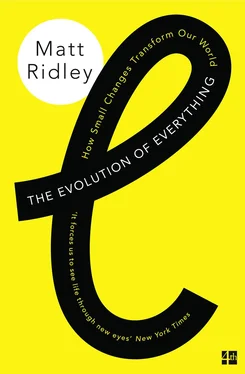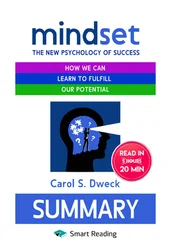True, but to anybody outside a small clique of cosmologists who had spent too long with their telescopes, the idea of the anthropic principle was either banal or barmy, depending on how seriously you take it. It so obviously confuses cause and effect. Life adapted to the laws of physics, not vice versa. In a world where water is liquid, carbon can polymerise and solar systems last for billions of years, then life emerged as a carbon-based system with water-soluble proteins in fluid-filled cells. In a different world, a different kind of life might emerge, if it could. As David Waltham puts it in his book Lucky Planet , ‘It is all but inevitable that we occupy a favoured location, one of the rare neighbourhoods where by-laws allow the emergence of intelligent life.’ No anthropic principle needed.
Waltham himself goes on to make the argument that the earth may be rare or even unique because of the string of ridiculous coincidences required to produce a planet with a stable temperature with liquid water on it for four billion years. The moon was a particular stroke of luck, having been formed by an interplanetary collision and having then withdrawn slowly into space as a result of the earth’s tides (it is now ten times as far away as when it first formed). Had the moon been a tiny bit bigger or smaller, and the earth’s day a tiny bit longer or shorter after the collision, then we would have had an unstable axis and a tendency to periodic life-destroying climate catastrophes that would have precluded the emergence of intelligent life. God might claim credit for this lunar coincidence, but Gaia – James Lovelock’s theory that life itself controls the climate – cannot. So we may be extraordinarily lucky and vanishingly rare. But that does not make us special: we would not be here if it had not worked out so far.
Leave the last word on the anthropic principle to Douglas Adams: ‘Imagine a puddle waking up one morning and thinking, “This is an interesting world I find myself in – an interesting hole I find myself in – fits me rather neatly, doesn’t it? In fact it fits me staggeringly well, may have been made to have me in it!”’
It is no accident that political and economic enlightenment came in the wake of Newton and his followers. As David Bodanis argues in his biography of Voltaire and his mistress, Passionate Minds , people would be inspired by Newton’s example to question traditions around them that had apparently been accepted since time immemorial. ‘Authority no longer had to come from what you were told by a priest or a royal official, and the whole establishment of the established church or the state behind them. It could come, dangerously, from small, portable books – and even from ideas you came to yourself.’
Gradually, by reading Lucretius and by experiment and thought, the Enlightenment embraced the idea that you could explain astronomy, biology and society without recourse to intelligent design. Nikolaus Copernicus, Galileo Galilei, Baruch Spinoza and Isaac Newton made their tentative steps away from top–down thinking and into the bottom–up world. Then, with gathering excitement, Locke and Montesquieu, Voltaire and Diderot, Hume and Smith, Franklin and Jefferson, Darwin and Wallace, would commit similar heresies against design. Natural explanations displaced supernatural ones. The emergent world emerged.
2 2. The Evolution of Morality 3. The Evolution of Life 4. The Evolution of Genes 5. The Evolution of Culture 6. The Evolution of the Economy 7. The Evolution of Technology 8. The Evolution of the Mind 9. The Evolution of Personality 10. The Evolution of Education 11. The Evolution of Population 12. The Evolution of Leadership 13. The Evolution of Government 14. The Evolution of Religion 15. The Evolution of Money 16. The Evolution of the Internet Epilogue: The Evolution of the Future Footnotes Sources and Further Reading Index Acknowledgements By the Same Author About the Publisher
The Evolution of Morality 2. The Evolution of Morality 3. The Evolution of Life 4. The Evolution of Genes 5. The Evolution of Culture 6. The Evolution of the Economy 7. The Evolution of Technology 8. The Evolution of the Mind 9. The Evolution of Personality 10. The Evolution of Education 11. The Evolution of Population 12. The Evolution of Leadership 13. The Evolution of Government 14. The Evolution of Religion 15. The Evolution of Money 16. The Evolution of the Internet Epilogue: The Evolution of the Future Footnotes Sources and Further Reading Index Acknowledgements By the Same Author About the Publisher
O miserable minds of men! O hearts that cannot see!
Beset by such great dangers and in such obscurity
You spend your lot of life! Don’t you know it’s plain
That all your nature yelps for is a body free from pain,
And, to enjoy pleasure, a mind removed from fear and care?
Lucretius, De Rerum Natura , Book 2, lines 1–5
Soon a far more subversive thought evolved from the followers of Lucretius and Newton. What if morality itself was not handed down from the Judeo-Christian God as a prescription? And was not even the imitation of a Platonic ideal, but was a spontaneous thing produced by social interaction among people seeking to find ways to get along? In 1689, John Locke argued for religious tolerance – though not for atheists or Catholics – and brought a storm of protest down upon his head from those who saw government enforcement of religious orthodoxy as the only thing that prevented society from descending into chaos. But the idea of spontaneous morality did not die out, and some time later David Hume and then Adam Smith began to dust it off and show it to the world: morality as a spontaneous phenomenon. Hume realised that it was good for society if people were nice to each other, so he thought that rational calculation, rather than moral instruction, lay behind social cohesion. Smith went one step further, and suggested that morality emerged unbidden and unplanned from a peculiar feature of human nature: sympathy.
Quite how a shy, awkward, unmarried professor from Kirkcaldy who lived with his mother and ended his life as a customs inspector came to have such piercing insights into human nature is one of history’s great mysteries. But Adam Smith was lucky in his friends. Being taught by the brilliant Irish lecturer Francis Hutcheson, talking regularly with David Hume, and reading Denis Diderot’s new Encyclopédie , with its relentless interest in bottom–up explanations, gave him plenty with which to get started. At Balliol College, Oxford, he found the lecturers ‘had altogether given up even the pretence of teaching’, but the library was ‘marvellous’. Teaching in Glasgow gave him experience of merchants in a thriving trading port and ‘a feudal, Calvinist world dissolving into a commercial, capitalist one’. Glasgow had seen explosive growth thanks to increasing trade with the New World in the eighteenth century, and was fizzing with entrepreneurial energy. Later, floating around France as the tutor to the young Duke of Buccleuch enabled Smith to meet d’Holbach and Voltaire, who thought him ‘an excellent man. We have nothing to compare with him.’ But that was after his first, penetrating book on human nature and the evolution of morality. Anyway, somehow this shy Scottish man stumbled upon the insights to explore two gigantic ideas that were far ahead of their time. Both concerned emergent, evolutionary phenomena: things that are the result of human action, but not the result of human design.
Adam Smith spent his life exploring and explaining such emergent phenomena, beginning with language and morality, moving on to markets and the economy, ending with the law, though he never published his planned book on jurisprudence. Smith began lecturing on moral philosophy at Glasgow University in the 1750s, and in 1759 he put together his lectures as a book, The Theory of Moral Sentiments . Today it seems nothing remarkable: a dense and verbose eighteenth-century ramble through ideas about ethics. It is not a rattling read. But in its time it was surely one of the most subversive books ever written. Remember that morality was something that you had to be taught, and that without Jesus telling us what to teach, could not even exist. To try to raise a child without moral teaching and expect him to behave well was like raising him without Latin and expecting him to recite Virgil. Adam Smith begged to differ. He thought that morality owed little to teaching and nothing to reason, but evolved by a sort of reciprocal exchange within each person’s mind as he or she grew from childhood, and within society. Morality therefore emerged as a consequence of certain aspects of human nature in response to social conditions.
Читать дальше












